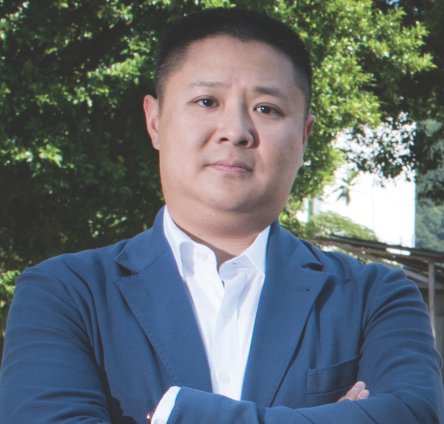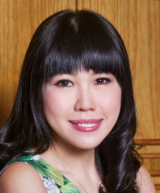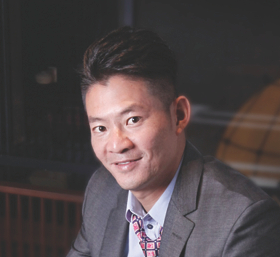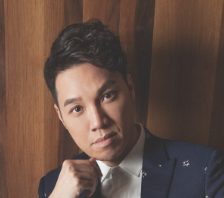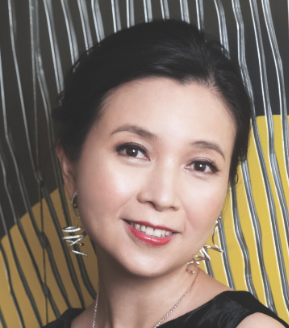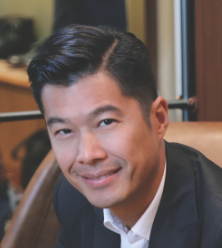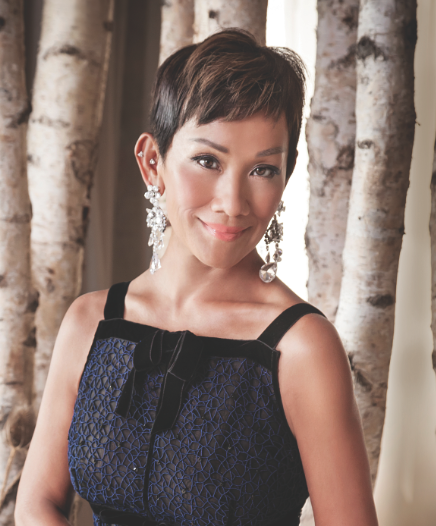For Charles Pang, Executive Director of the Canadian International School of Beijing, success is more than just academic…
You grew up in Canada. What do you recall of those years?
I moved to Toronto when I was about five or six and went to boarding school there, which proved to be one of the most wonderful experiences of my life. Some of the people I met during that time became lifelong friends.
What brought you back to Hong Kong?
You could say that I never really came back to Hong Kong. After university, I headed off to join the family education business in Beijing. It was only after I got married that I started to spend more time in Hong Kong, largely because my wife – and then, later, my kids – lived here.

Read: Singer Charlene Chou Xuan on spreading traditional Chinese music to new audiences
Initially, your family was heavily involved in the textile sector, but then switched into education. What triggered such a dramatic change?
Around 1994, my father was part of Team Canada, a business delegation invited to meet Li Peng, then the Chinese Prime Minister. One of the issues discussed was the possibility of exporting the Canadian education system to China. With Li’s blessing, we then launched the Canadian International School of Beijing (CISB), with my father as one of the founders. Today, CISB has more than 30 branches across China, catering mainly to the expat community.
Do you see your schools as having had an impact on China’s education system overall?
Education in China is very much focused on the gao kao, the National Higher Education Entrance Examination, an approach that I find quite one dimensional. Typically, the teacher speaks and the student just listens. In our schools, the teacher is more of a guide, rather than forcing education on students.
We also took a lead in terms of technology. Some 10 years ago, we were the first to bring Smart Boards into the classroom. Now, nearly all of the schools in China have followed our lead.
Over recent years, the education sector has been transformed. What do you see as the most dramatic change?
When we started CISB 16 years ago, education was not at all technology-based and everything was still taught in a traditional fashion. Now, the internet has become an integral part of the educational process.
This is to the extent that we rarely use blackboards or whiteboards anymore, with many schools set to become entirely paperless. Similarly, homework and assessments can now be submitted online, with teachers able to instantly award grades and provide feedback. It also allows parents to go online and check grades in real time.

Moving on, you’ve now ventured into the luggage sector…
Ah, Ventris; it’s an aspirational lifestyle brand. The concept came about two years ago and then a few of us got together and informally launched the brand. Initially, we were just making luggage for family and friends but, after a few people commented on its commercial potential, we decided to get more serious about it. The brand has been under development ever since, with an online launch planned very soon.
The luggage sector is famously competitive – what do you see as Ventris’ USP?
It’s made from carbon-fibre, the same material racing cars are built from. As a result, it’s super-sturdy, yet very light. While we hope it will appeal to those who enjoy a fast-paced, jet-set lifestyle, it’s not going to be mass-produced. It’s a bespoke line for a distinctly niche clientele. We definitely won’t be going up against TUMI, Rimowa or any of the other big brands.
Does that complete your business portfolio or do you have other plans?
Well, I have just opened a restaurant in Causeway Bay – the Phó Metro. We also have a number of new schools opening this year – two in the US and two in Canada. Just as we brought Western education to China, we’re now looking to export Chinese language and culture to North America, with the Chinese Ministry of Education being one of our key backers. It’s also partly about giving the children of Chinese ex-pats the opportunity to learn about their own language and culture.

Read: A guide to gentlemen’s grooming and skincare in Hong Kong
In terms of teaching your own children, what are the most important values you have sought to instill in them?
For me, it’s important that they grow up well-mannered and considerate. I am actually okay if they don’t turn out to be too academically-inclined. I am a great believer in the importance of kids being kids.
Right now, I see a lot of ‘tiger’ parents in Hong Kong, mums and dads who are constantly pushing their kids to over-achieve at school. Many of them are packing their kids’ after-school hours with endless extra-curricular activities and supplementary tutoring, with their children having little say in it.
I feel most Hong Kong kids don’t really get the freedom to enjoy their childhood. While I was growing up in Canada, we really had the chance to be ourselves and kids need that. They shouldn’t be burdened with their parents own unfulfilled ambitions.

Read: The 300 Most Powerful People in Hong Kong
Overall, then, do you see yourself as a laid-back parent?
No, not laid-back, but I do want my children to realise their full potential in as natural a way as possible. Of course, that doesn’t mean there are no ground rules. While I ensure that homework is done, I don’t force them to do things they don’t like. Inevitably, if you force your children into learning something they have no interest in, they will never excel at it.
Finally, as a successful entrepreneur with several businesses under your belt, what advice would you give to those looking to follow in your footsteps?
As an entrepreneur, you should never be afraid to fail. Not all businesses will succeed, and failure is part of the learning process. On top of that, you need a good business plan, solid finances and a willingness to work very hard indeed. Above all, though, learn from your mistakes and apply that knowledge to your next venture.
The full version of this interview appears on Gafencu Magazine’s March 2018 print issue as “Class Act” by Suchetana Mukhopadhyay. You can download the free app for digital editions of the magazine.



